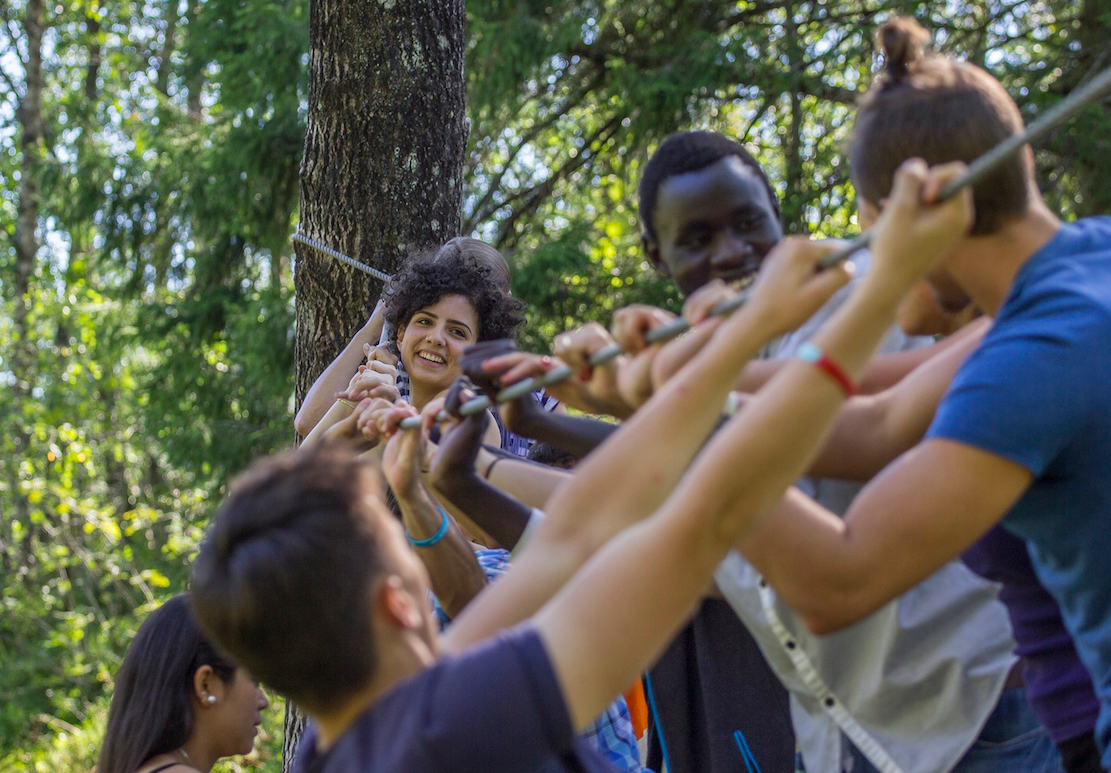
UWC Red Cross Nordic (UWC RCN) was founded in 1995 in Norway, and their mission is “to make education a force to unite people, nations and cultures for peace and a sustainable future”. In this regard, the school adopted ‘deliberate diversity’ as their educational model and gave priority to create cultural harmony throughout. The school’s educational model places diversity at the core of all the practices and build towards their vision, influencing ‘peace and a sustainable future’ through using experiential learning in academic studies as well as developing students’ personal and social skills through extra-curricular activities.
Arne Osland, UWC RCN’s Director of Development describes the school’s stance as ‘Glocal’, meaning that they are connected to and rooted in the local environment but with a global mind-set and framework. In relation to this, the school seeks to educate diverse range of young people to become global citizens with an open mind-set who are leading change in their local communities. The students are supported and equipped with the necessary skills such as empathy, thoughtfulness and collaboration, to ultimately be able to contribute to a world without conflict through their actions.
UWC RCN follows International Baccalaureate (IB) Diploma Programme, which has an interdisciplinary and a rigorous curriculum, combining various studies and learning techniques. The school expands the education beyond courses by creating an inclusive learning and living environment with the extra-curricular activities.
Examples of Changemaking:
- UWC RCN has a strong focus on securing diversity among the student body. Students are being selected from various regional, cultural, social and economic backgrounds in order to create a multicultural environment at the school and 30% of the students are accepted from the Nordic countries. As a result, the 200 students represent 95 nations, from Nepal to Colombia, including students from marginalized backgrounds and areas of conflict. UWC RCN seeks to remove the cultural boundaries through training students in social justice and provides a space for them to celebrate their differences while being respectful to other cultures.
- To disseminate ‘deliberate diversity’ approach, ‘Meeting Place for Diversity’ project is one of the best examples with concrete positive outcomes to the local community. The project is an example of the school’s cross-sectoral collaboration, and the main partners consist of The Norwegian Directorate of Immigration (UDI), the local county and Sparebankstiftinga Sogn og Fjordane (a Norwegian banking foundation). These partnerships support UWC RCN in addressing integration, which is one of the most urgent social problems in the region. The school works with the reception centre for asylum seekers at the local municipality. Within the scope of this project, students and asylum seekers are given the opportunity to connect through collective events while the school management reaches to other schools in the region to influence their work with refugees: ultimately, seeking to develop solutions for integration issues as well as investigating the ways to influence welcoming communities.
- The school encourages the students to be innovative and supports the students in developing their own changemaking initiatives as a means of tackling challenges around them. These processes are often led by students themselves. One such example is SaFuGe, an organization founded by UWC RCN’s students, with the aim of improving the studying conditions among the under-privileged schools where the students originally came from. Another example is DROP (Do Remember Other People), an initiative that started by UWC RCN students, staff and alumni in order to support orphanages and schools in under-privileged regions.
- UWC RCN incorporates outdoors and leisure time as a part of the school’s extra-curricular activities. These activities range from group sessions in yoga or photography to students’ own hobbies and interests. One of the reasons that the school is established in Flekke (a small town in the fjords of western Norway) is to encourage students to go for nature walks, to go kayaking and to explore the Nordic landscape with mountains and lakes. These extra-curricular activities contribute in inter-personal skills and create solidarity among the students as well as cultivating changemaker skills such as empathy, active learning and teamwork.